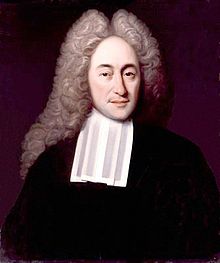| Carl Andreas Duker | |
|---|---|
 | |
| Born | 1670 Unna |
| Died | November 5, 1752 Meiderich |
| Nationality | German |
| Other names | Karl Andreas Düker |
| Occupation(s) | classical scholar and jurist |
Carl Andreas Duker (1670 – November 5, 1752) was a German classical scholar and jurist.
Biography
He was born at Unna in Westphalia, and studied at the University of Franeker under Jacob Perizonius. In 1700 he was appointed teacher of history and eloquence at the Herborn gymnasium, in 1704 vice-principal of the school at The Hague, and in 1716 he succeeded (with Drakenborch as colleague) to the professorship formerly held by Peter Burmann at Utrecht. After eighteen years' tenure he resigned his post, and lived in retirement at IJsselstein and Vianen. His health finally broke down under excessive study, and he died, almost blind, at the house of a relative in Meiderich near Duisburg, on 5 November 1752.
Works
His chief classical works were editions of Florus (1722) and Thucydides (1731, considered his best). He brought out the 2nd edition of Perizonius's Origines Babylonicae et Aegyptiacae (1736) and his commentary on Pomponius Mela (1736–1737). Duker was also an authority on ancient law, and published Opuscula varia de latinitate veterum jurisconsultorum (1711), and a revision of the Leges Atticae of S. Petit (1741).
Notes
References
 This article incorporates text from a publication now in the public domain: Chisholm, Hugh, ed. (1911). "Duker, Carl Andreas". Encyclopædia Britannica. Vol. 8 (11th ed.). Cambridge University Press. p. 651. This work in turn cites:
This article incorporates text from a publication now in the public domain: Chisholm, Hugh, ed. (1911). "Duker, Carl Andreas". Encyclopædia Britannica. Vol. 8 (11th ed.). Cambridge University Press. p. 651. This work in turn cites:
- C. Saxe, Onomasticon litterarium, vi. 267
- Emil Julius Hugo Steffenhagen (1877), "Duker, Karl Andreas", Allgemeine Deutsche Biographie (in German), vol. 5, Leipzig: Duncker & Humblot, pp. 455–456
- Article in Ersch and Gruber's Allgemeine Encyklopädie